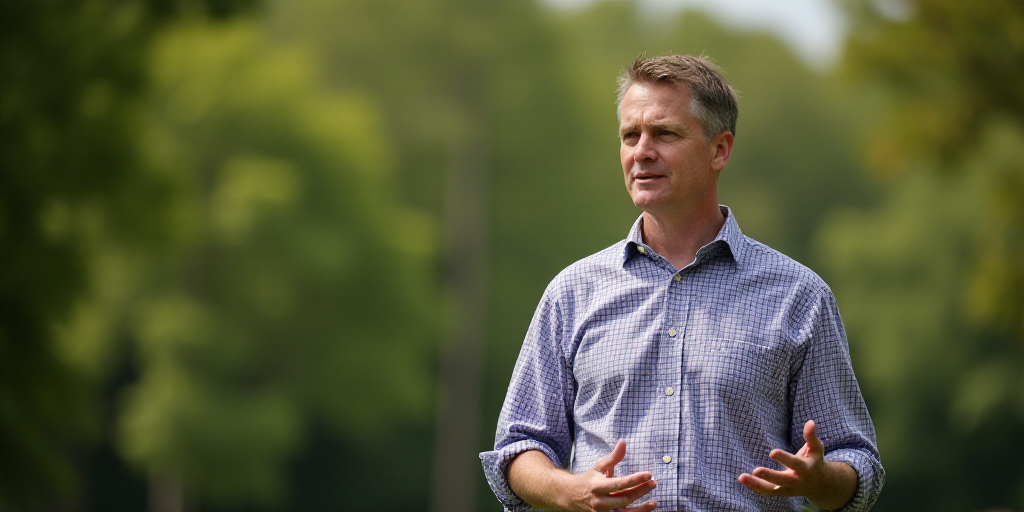Introduction
The agricultural sector faces complex challenges, including extreme climate changes, emerging pests, and the growing demand for food. Genetic innovation has become an essential ally to enhance crop productivity, resilience, and sustainability. To understand its impact on current agriculture, El Economista interviewed JD Rossouw, Bayer Crop Science’s Global Leader of Genetic Improvement.
Understanding Farmers’ Needs
Rossouw emphasized that every product developed must start with what farmers need. Understanding their challenges—yield, stability, resistance, and adaptation to changing weather conditions—is crucial for creating real-impact solutions.
Investing in Innovation
Historically, product improvement took six to eight years. Today, thanks to Bayer’s investments in the Agricultural Division, farmers can see new products in their fields five times faster. In 2024, Bayer invested €2.6 billion in Research and Development (I+D), which is 12% of global sales.
Precision Breeding
Bayer’s continuous work in favor of the industry involves Precision Breeding, combining artificial intelligence (AI), genomic analysis, and automation. This not only reduces development times but also provides farmers with more resistant seeds.
Local Project, Global Impact
With over 100 years of presence in Mexico, operations in eight states, and five production sites, Bayer combines global knowledge with local infrastructure. They have 4,731 employees, ten research centers, and annual sales exceeding €1.2 billion in Mexico.
Case Study: VITALA Corn
A significant example of genetic transformation in agriculture is Bayer’s VITALA corn, developed in Mexico after 15 years of research. By reducing its height from 3-4 meters to 2 meters, VITALA prevents breakage due to wind and allows farmers to increase planting density, use inputs more efficiently, and operate with greater profitability.
Moreover, VITALA optimizes water usage in adverse scenarios, contributing to regenerative agricultural practices. Today, it is cultivated in the US, Europe, Asia, and Africa, demonstrating that local innovation can become a global solution.
Innovative Solutions for a More Resilient Field
Rossouw acknowledged that genetics alone is not enough; climate challenges are growing. Bayer uses mass data and AI to anticipate complications and support farmers. Climate FieldView, present in over 23 countries and 130 million hectares, including the Pacific Mexican region, monitors crop behavior in real-time, detects pests, and adjusts practices for better resource utilization.
CARLOTA Tool
Bayer’s CARLOTA tool, developed in Mexico, has saved over 14 million cubic meters of water in 20,000 hectares by sending recommendations via WhatsApp to farmers, facilitating decision-making.
Collaborative Science and Talent Development
Rossouw believes innovation should not be isolated. During his presidency in the National Association of Plant Breeders (NAPB), he promoted public-private collaboration in the US and Canada, focusing on students. Bayer reinforces this vision through global alliances and support programs for over 80,000 small farmers in Mexico through training, technical advice, and access to technologies to improve their quality of life and productivity.
Connecting Field and Consumer
Rossouw highlighted that innovation’s success depends on consumers understanding its value. He encourages paying attention to food production methods and valuing advancements in taste, color, and nutrition to understand more efficient and environmentally friendly development.
Bayer promotes visitation programs, educational tools, and digital spaces for farmers, students, and consumers to learn about new seed varieties’ development firsthand. The goal is for the public to see tangible results from scientific research.
Message to Young Generations
Rossouw’s message to young people is clear: “Dream big. Get involved in these technologies. Agriculture is the heart of society. The impact you can achieve goes beyond science; you can contribute to food security, combat climate trends, feed the world… it’s a very noble field.”






